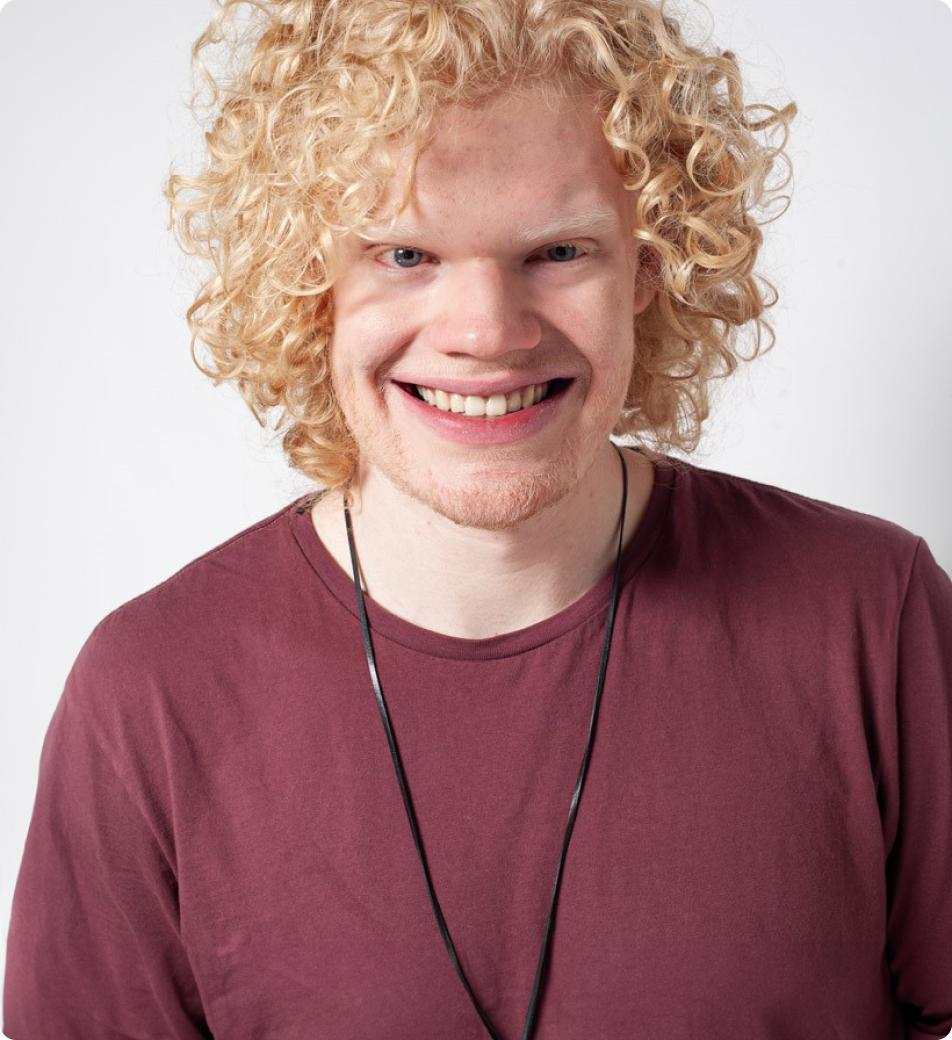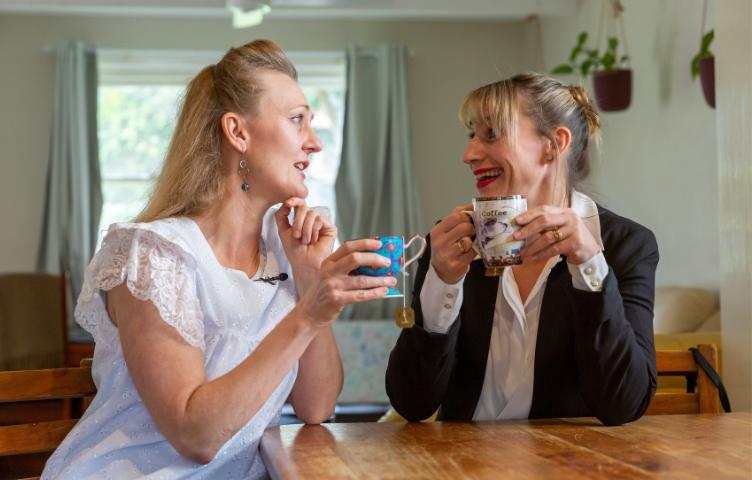
“Things are blurry. When it comes to being low vision, my condition is what it is. But I will always give everything my best because it is a part of my personality to do that.”
Meet Benj
Benj has been living with Albinism since birth.
Albinism is a genetic condition that affects the body’s ability to produce melanin. It can come in two forms, one which affects both skin and eyes, giving someone fair skin, white or red hair and pale eyes. The other affects the eyes only.
He learnt to adapt and never let his eye condition stop him from living his life to the fullest and embarking on his dream to make it as an actor.
Ways to be more inclusive and support someone with low vision
Be confident.
When it’s loud and noisy, it can be hard for someone with low vision to pick up on social cues. Know they are not being rude; they simply may not have heard you or even know you are there. This is where you can step in and introduce yourself, asking if they need any help.
Don’t assume.
When you assume, you can't know anything as fact. Appearances can be deceiving and often, a low vision condition is not physically visible and remains hidden throughout your interactions. The best way you can help and avoid making assumptions is to ask the right kinds of relevant questions to the situation you are both in.
Be educated.
Don't go around telling people what you think they would need and want. To act in a certain way because that’s how you do something. A great way for you to be more inclusive is by educating yourself on how someone with low vision sees the world. Then you can have the right kinds of conversations and ask if they need any support.

Acknowledgement
Funded by the Australian Government Department of Social Services.
Go to www.dss.gov.au for more information.











